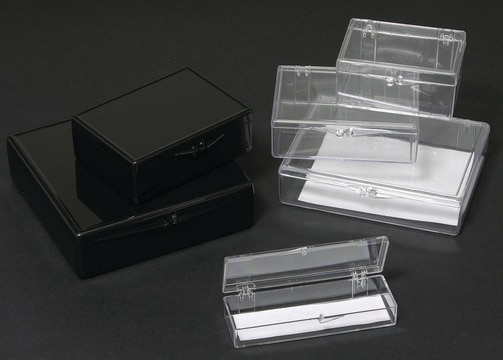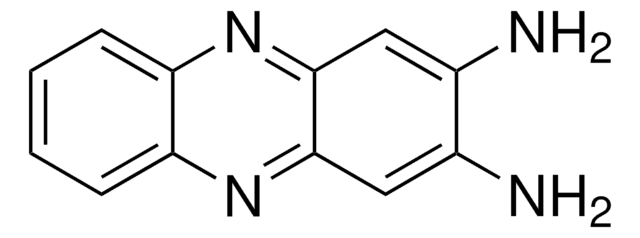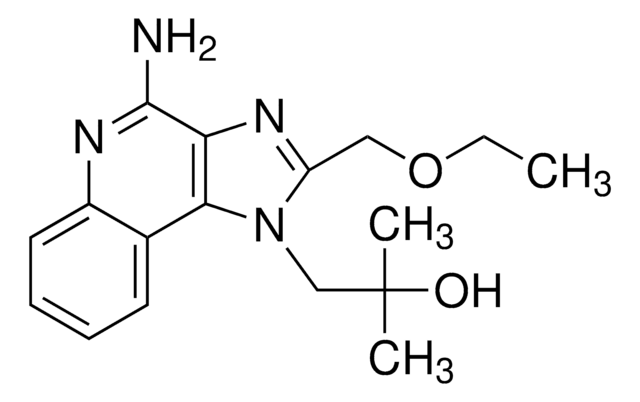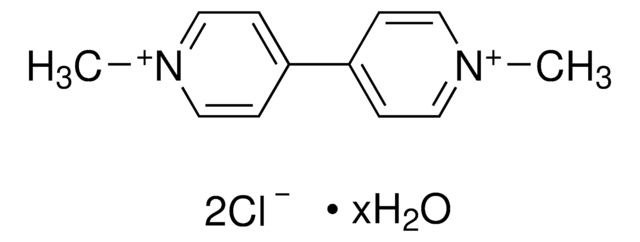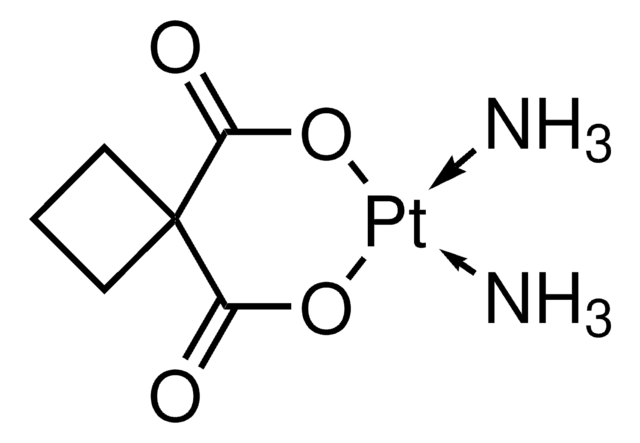D8064
4-(2-(6-(Dibutylamino)-2-naphthalenyl)ethenyl)-1-(3-sulfopropyl)pyridinium hydroxide inner salt
≥95% purity (HPLC), solid
Synonym(s):
Di-4-ANEPPS
About This Item
Recommended Products
product name
4-(2-(6-(Dibutylamino)-2-naphthalenyl)ethenyl)-1-(3-sulfopropyl)pyridinium hydroxide inner salt, ≥95% (HPLC), solid
Quality Level
assay
≥95% (HPLC)
form
solid
mol wt
480.66
color
orange to dark red
solubility
DMF: soluble
DMSO: soluble
ethanol: soluble
ε (extinction coefficient)
≥38000 at 493-499 nm in methanol
application(s)
diagnostic assay manufacturing
hematology
histology
storage temp.
2-8°C
SMILES string
CCCCN(CCCC)c1ccc2cc(\C=C\c3cc[n+](CCCS([O-])(=O)=O)cc3)ccc2c1
InChI
1S/C28H36N2O3S/c1-3-5-17-30(18-6-4-2)28-13-12-26-22-25(10-11-27(26)23-28)9-8-24-14-19-29(20-15-24)16-7-21-34(31,32)33/h8-15,19-20,22-23H,3-7,16-18,21H2,1-2H3
InChI key
HAPJROQJVSPKCJ-UHFFFAOYSA-N
Related Categories
Application
Biochem/physiol Actions
wgk_germany
WGK 3
flash_point_f
Not applicable
flash_point_c
Not applicable
ppe
Eyeshields, Gloves, type N95 (US)
Choose from one of the most recent versions:
Certificates of Analysis (COA)
Sorry, we don't have COAs for this product available online at this time.
If you need assistance, please contact Customer Support.
Already Own This Product?
Find documentation for the products that you have recently purchased in the Document Library.
Our team of scientists has experience in all areas of research including Life Science, Material Science, Chemical Synthesis, Chromatography, Analytical and many others.
Contact Technical Service
![4-(2-[6-(Dioctylamino)-2-naphthalenyl]ethenyl)-1-(3-sulfopropyl)pyridinium inner salt ≥95% (HPLC), solid](/deepweb/assets/sigmaaldrich/product/structures/276/606/9b895cb0-f3b8-42d2-bceb-a788c0bcf884/640/9b895cb0-f3b8-42d2-bceb-a788c0bcf884.png)
![trans-4-[4-(Dimethylamino)styryl]-1-methylpyridinium iodide Dye content 98 %](/deepweb/assets/sigmaaldrich/product/structures/416/722/5d59b6c3-5f2d-4396-a721-5cb82ba7038c/640/5d59b6c3-5f2d-4396-a721-5cb82ba7038c.png)
